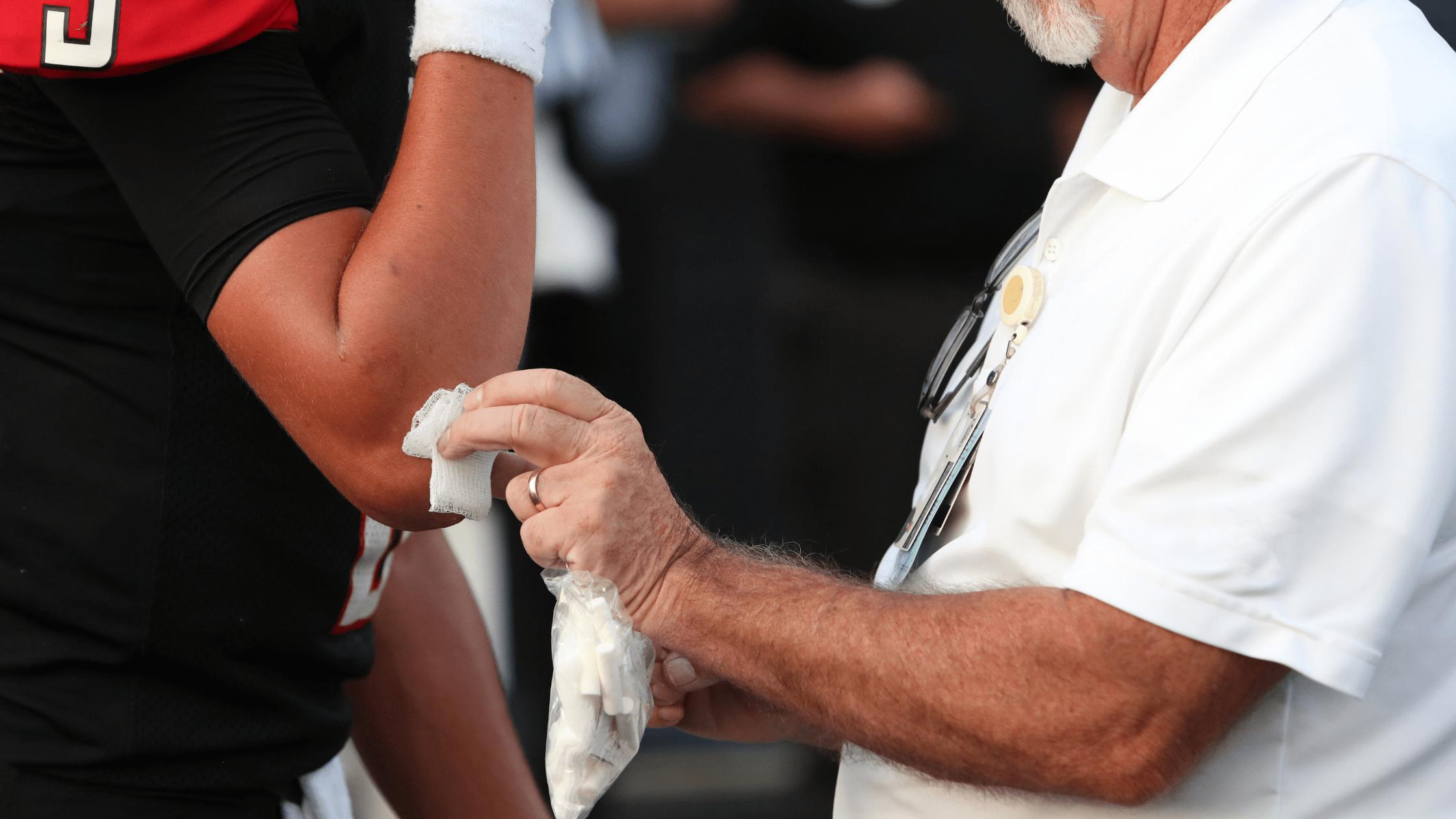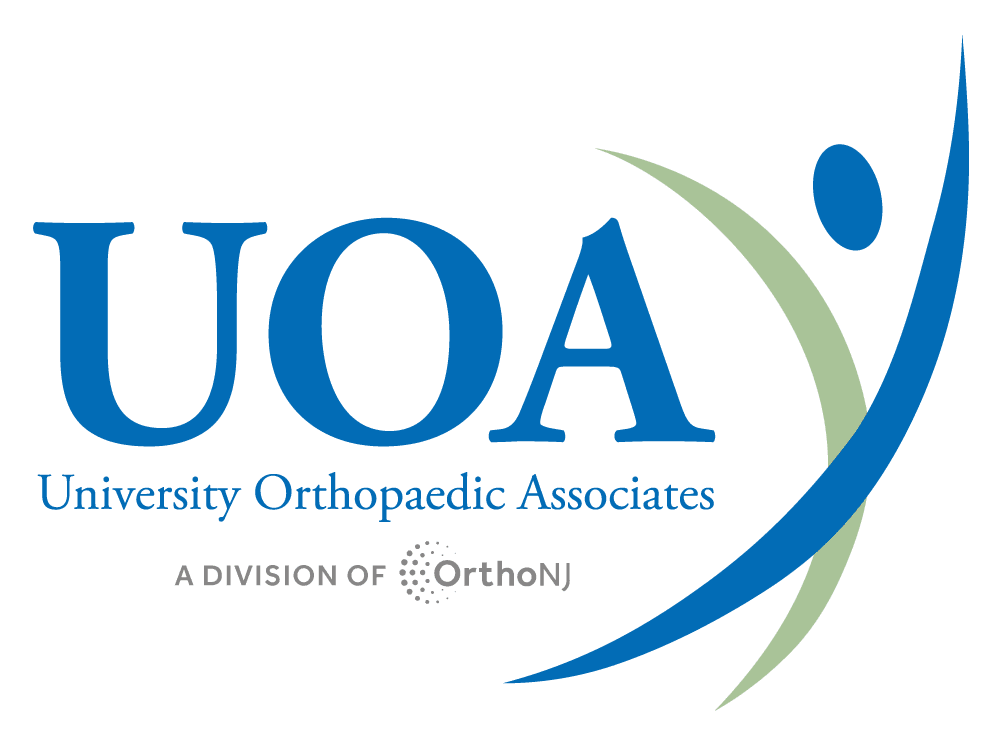Athletic Trainer: A Valued Member of the Sports Medicine Team

Certified Athletic Trainers (ATCs) are licensed healthcare professionals in the state of New Jersey. They work at the direction of physicians to optimize and support the athletic, work and life activities of their patients and clients. They play an important role in the prevention and management of acute and chronic sports-related conditions that can potentially lead to impairment and disability.
Today, an estimated 9 million student athletes participate in high school sports programs, many of whom also participate in sports clubs and summer leagues. Athletic trainers (ATs) play valuable roles in helping these young individuals enhance their sports performance and manage injuries during their important developing years. In the state of New Jersey, 94% of public high school athletes have access to an athletic trainer. ATCs provide care for virtually all collegiate and professional athletes within the state.
What Training Is Required to Become an Athletic Trainer?
Those who aspire to become athletic trainers must earn a Master of Science in Athletic Training (MSAT), pass national certification exams and maintain licensure in the state where they practice.
ATs are supported academically and clinically by the following organizations:
- American Academy of Family Physicians
- American Academy of Pediatrics
- American Orthopaedic Society for Sports Medicine
- American Medical Society for Sports Medicine
ATs are trained in these areas to support their patients and clients:
- Risk management and emergency action planning. This helps them identify unsafe field and environmental conditions and prepare plans to manage potentially life-threatening injuries.
- Taping, Bracing and Padding – ATs have expert proficiency with taping, bracing and padding of athletic injuries in order to reduce reinjury and allow safe return to play.
- Design of comprehensive rehabilitation programs. ATs are trained to fully assess the sports injuries and conditions and develop customized treatment plans that help patients quickly and safely return to activities.
- Sports nutrition. This is the study and practice of nutrition as it relates to enhancing athletic performance. Sports nutrition teaches ATs how to monitor body composition, identify athletes at risk for nutritional disorders and develop customized diet and meal plans that enhance performance.
- Emergency Care – With advanced training in CPR, emergency care of fractures, strains and sprains, heat illness, or hypothermia, ATs receive extensive training in acute care to best manage emergency situations.
- Psychological Issues – Athletic trainers are trained to recognize psychological issues that athletes may express and direct them to appropriate care.
Where Do Athletic Trainers Work?
ATs work in a variety of settings where they are entrusted to care for athletes of all levels and those whose jobs and careers require them to stay highly active.
Settings in which a certified athletic trainer may work include:
- Public and private secondary schools
- Colleges and universities
- Professional and Olympic sports
- Youth leagues, municipal and independently owned youth sports facilities
- Physician practices
- Hospitals, hospital emergency rooms, urgent and ambulatory care centers
- Healthcare practices with specialties in sports medicine, cardiac rehab, medical fitness, wellness and physical therapy
- Occupational health departments in commercial settings, which include manufacturing, distribution and offices, to assist with ergonomics
- Police and fire departments and academies, municipal departments and branches of the military
- Performing arts, including professional and collegiate level dance and music
When working with physicians specializing in sports medicine and orthopaedics, ATs can effectively communicate activity modifications to patients while emphasizing safe and proper techniques. They can also design and implement home exercise programs and provide services, including gait training, crutch fitting, bracing and orthotics. Many times, ATs will assist physicians with patient education and answer questions patients may have about their injuries and recovery timeline.
Values and Benefits of Working With Athletic Trainers
Many of the orthopaedic physicians and sports medicine specialists at UOA openly express their gratitude and appreciation for the ATs they work with when caring for their athletes on the field.
“On the playing field, athletic trainers act as our eyes and ears to keep athletes safe and healthy and are an essential part of our Sports Medicine Team at UOA. We employ athletic trainers in our office where they serve as valuable members of our team who assist in the management of patients with injuries,” says Charles J. Gatt, Jr., MD, Orthopaedic Sports Medicine Surgeon.
Patrick S. Buckley, MD, another Orthopaedic Sports Medicine Surgeon at UOA, agrees with Dr. Gatt. “Given the demands of youth sports and sports specialization, there’s a strong need for qualified medical providers who understand the issues faced by young athletes. Parents should be assured that an athletic trainer is always available to recognize, intervene and prevent sports injuries. They are an ideal choice for providing appropriate medical care to young athletes,” says Dr. Buckley.
“Athletic trainers work one-on-one with athletes and patients to help them restore their function and return to activities as quickly and as safely as possible—making them an integral part of our sports medicine team,” notes Kenneth G. Swan, MD, Orthopaedic Sports Medicine Surgeon. His colleague Cristobal Beiro, MD, Orthopaedic Sports Medicine Surgeon, agrees, saying, “Athletic Trainers are extremely knowledgeable, true assets and often first on the field. Make sure there is always one available to care for your injuries.”
University Orthopaedic Associates offers a wide range of orthopaedic and sports medicine services. Contact UOA today at (732) 537-0909 to request an appointment if you need treatment for an orthopaedic injury.
What UOA Docs have to say about ATCs
https://vimeo.com/927397255?share=copy
Dr. Gatt – https://vimeo.com/927395899?share=copy

